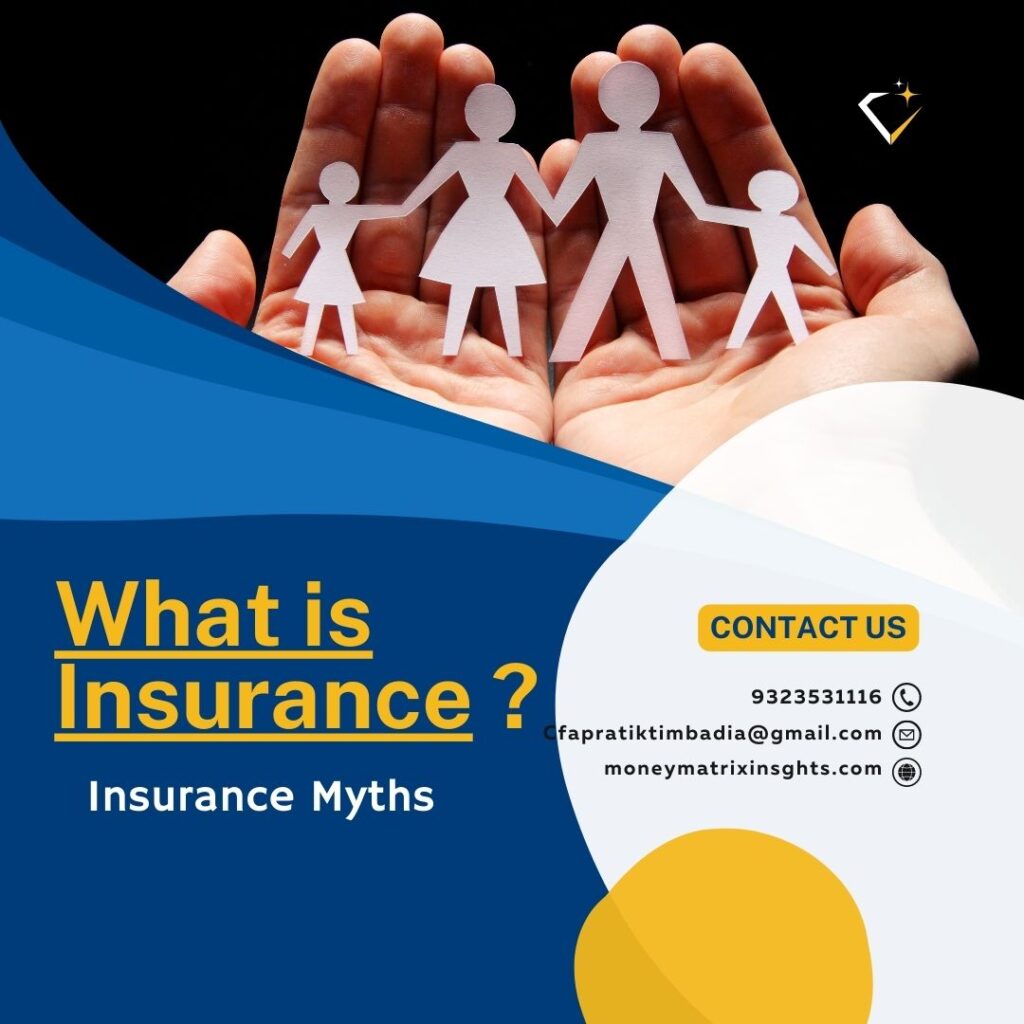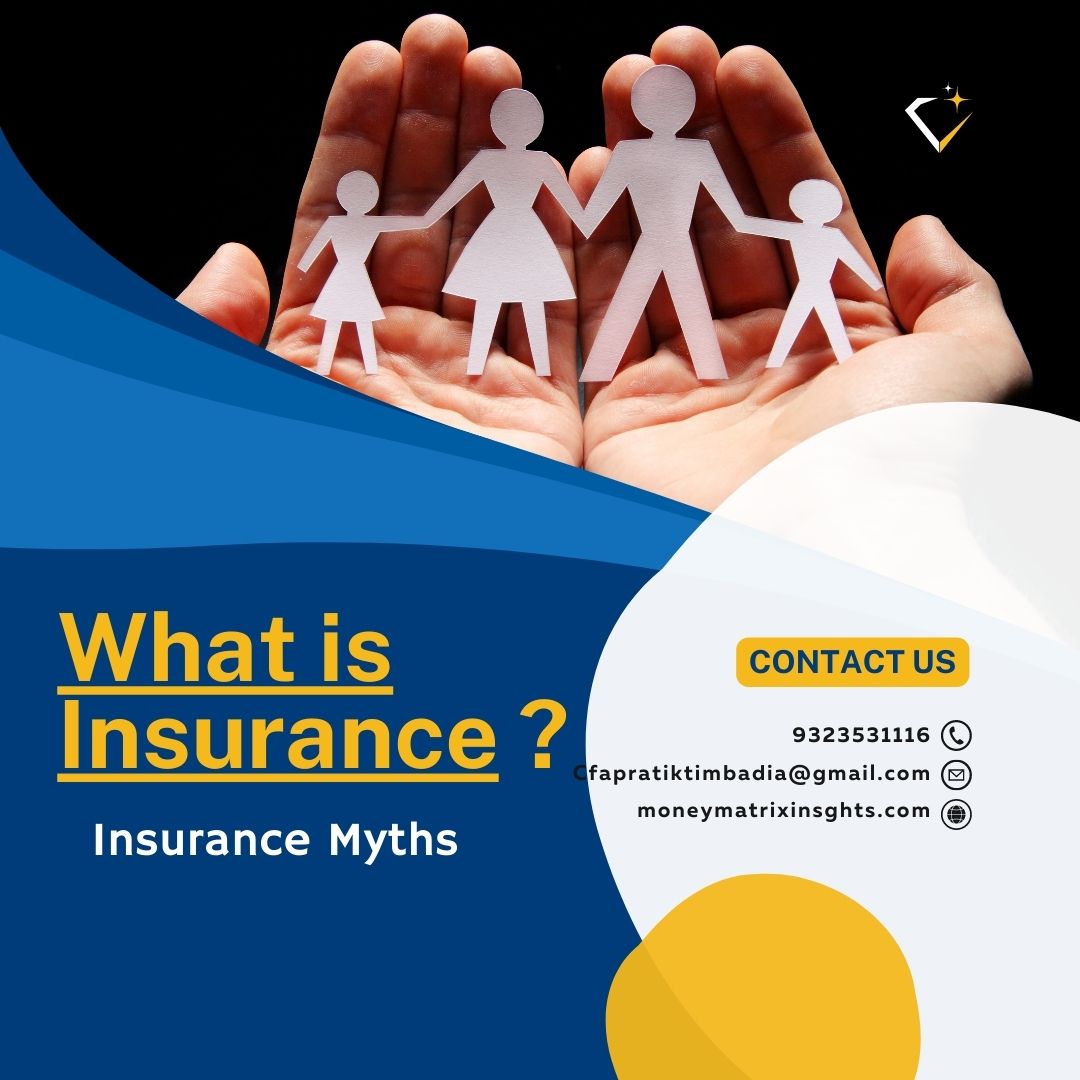Insurance plays a vital role in providing financial protection and peace of mind to individuals and businesses. However, there are several myths and misconceptions surrounding insurance in India that can hinder people from making informed decisions. In this blog post, we will debunk some common myths prevalent in India and shed light on the truth behind them.

What is insurance?
Insurance is a financial arrangement or contract between an individual or entity (the policyholder) and an insurance company.
The concept of insurance is based on the principle of risk transfer. By purchasing an insurance policy, the policyholder transfers the financial burden of potential losses to the insurance company. In return, the insurance company agrees to compensate the policyholder or beneficiaries for covered losses or damages, subject to the terms and conditions outlined in the policy.
Myths Of Insurance
Myth 1: Insurance is a Waste of Money: One of the most common myths about insurance is that it is a futile expense. However, the reality is that insurance acts as a safety net, protecting individuals and businesses from unforeseen events such as accidents, illnesses, and natural disasters. Insurance provides financial security by covering expenses that may otherwise be overwhelming. It is a wise investment that offers valuable protection and peace of mind.
Myth 2: Insurance is Only for the Elderly: Another prevalent myth is that insurance is only necessary for older individuals. However, accidents and illnesses can affect anyone at any age. Having insurance from a young age ensures that you are protected during unforeseen circumstances. Additionally, purchasing insurance early in life often results in lower premiums, making it more affordable in the long run.
Myth 3: Employer’s Insurance is Sufficient: Many individuals believe that the health or life insurance provided by their employer is enough to meet their needs. While employer-provided insurance is a valuable benefit, it may not offer comprehensive coverage or sufficient protection for all circumstances. It is essential to assess your individual needs and consider additional insurance coverage to bridge any gaps in your employer’s policy.
Myth 4: Insurance Premiums are Wasted if No Claims are Made: A common misconception is that paying insurance premiums without making any claims is a waste of money. However, insurance works on the principle of risk pooling, where premiums paid by policyholders collectively cover the claims of those who experience losses. By not making claims, you contribute to the stability of the insurance system and ensure that coverage is available when you need it most.
Myth 5: Insurance Companies Always Deny Claims: There is a perception that insurance companies frequently deny claims to maximize their profits. While claim denials can happen in rare cases, insurance companies have a vested interest in paying legitimate claims. It is crucial to understand your policy terms, provide accurate information, and follow the claims process diligently to enhance the chances of a successful claim settlement.
Myth 6: Insurance is Only for Wealthy Individuals: Some people believe that insurance is only necessary for the affluent. However, insurance is a financial tool that provides protection and stability to individuals across all income brackets. There are various types of insurance policies available at different price points to cater to diverse financial needs. It is essential to assess your financial situation and choose policies that align with your requirements and budget.
Myth 7: Insurance Agents are Always Dishonest: There is a misconception that insurance agents are only interested in selling policies for their own benefit and may not have the best interests of the customers in mind. While it is crucial to be cautious and verify the credentials of insurance agents, many agents are knowledgeable professionals who strive to provide suitable coverage based on individual needs. It is advisable to research and choose a reputable insurance agent or company for your insurance needs.
Myth 8: Young and Healthy Individuals Don’t Need Health Insurance: Young and healthy individuals often underestimate the need for health insurance, assuming that medical emergencies are unlikely at their age. However, accidents or unforeseen illnesses can occur at any time. Health insurance not only covers hospitalization expenses but also provides access to quality healthcare and preventive services.
Conclusion:
Insurance myths can create confusion and lead to misconceptions about the importance and benefits

